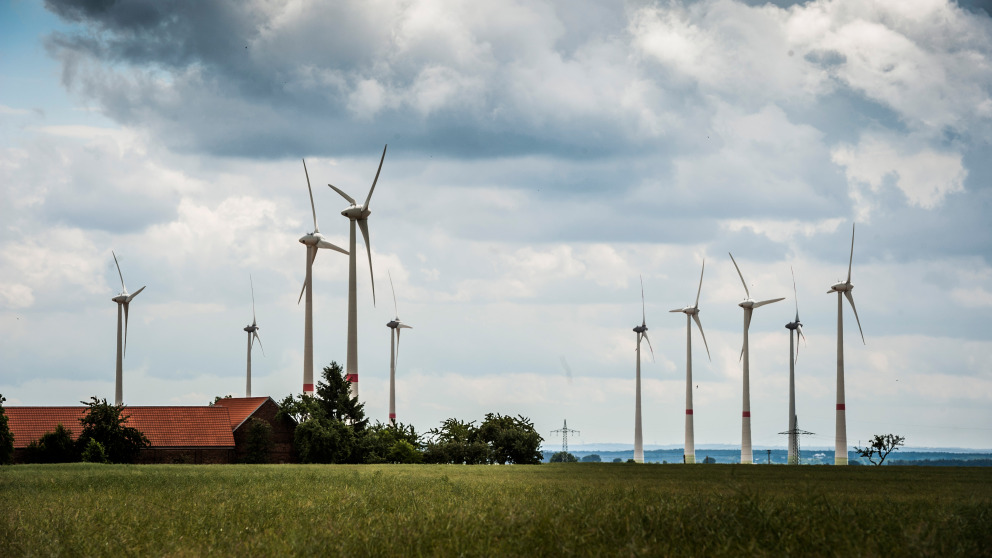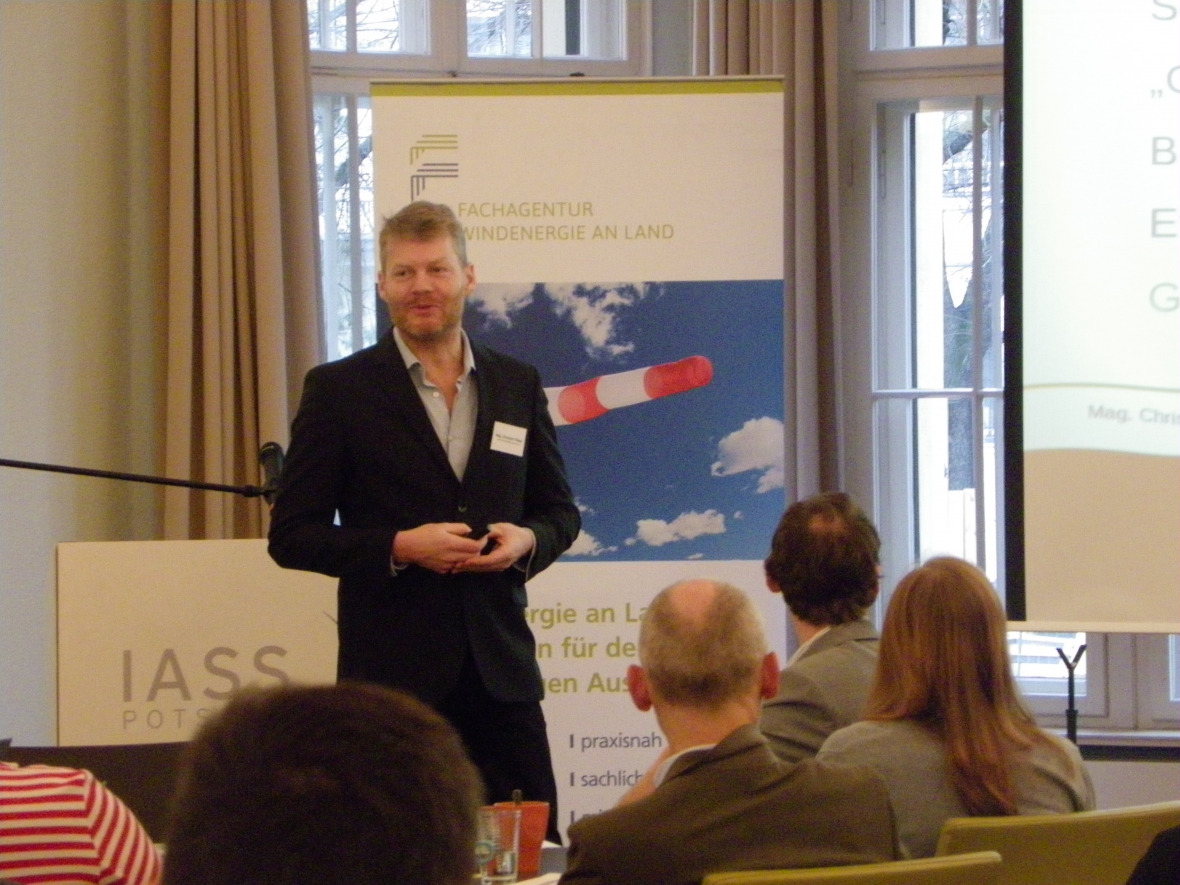Energy Transition with Public Participation: The Key to Successful Wind Farms
23.01.2019
People are often apprehensive when they hear about plans to build a wind farm in their locality. They wonder how it will change the landscape. And whether the noise of the rotor blades will get on their nerves. People need information about the planned changes, but their direct involvement in the decision-making process is also important, because the expansion of wind energy depends on public acceptance. The Fachagentur Windenergie an Land and the IASS invited representatives from politics, the energy sector, and civil society to participate in the 3rd Workshop on Public Participation in the Development of Wind Farms on 15 and 16 January. The focus was on how the Länder can facilitate public participation, with representatives from Baden-Württemberg and Schleswig-Holstein reporting on their experiences to date.

In his introduction, IASS Director Ortwin Renn outlined the requirements of a sustainable energy transition that, beyond the imperatives of climate and environmental protection, also supports ways of doing business that conserve resources, and relationships based on mutual respect and peaceful conflict resolution. Renn underlined the importance of transparency for participatory processes: If the decision to build a given energy plant has already been made, then that should be communicated clearly without insinuating that that in itself amounts to public participation.
Research has shown that acceptance for decisions that have already been made cannot be secured through participation. “As a decision-maker I need to think carefully about what aspects of the project I simply want to communicate and where I want to directly involve the public in the decision-making process. It’s important to strike a balance between too much participation, which can make it impossible to reach agreement, and too little, where citizens feel that they have not been consulted on plans to develop their locality,” explained Renn.
Baden-Württemberg supports local communities through its Energy Dialogue, Schleswig-Holstein awards labels to ‘fair’ wind farms
Rainer Carius from the Ministry of the Environment, Climate Protection and the Energy Sector presented the Forum Energiedialog Baden-Württemberg, which assists local communities in the implementation of the energy transition. “The Energiewende has made energy generation visible for many people, sometimes right on their doopstep. Most energy facilities are built in rural areas and they can have many different impacts on the daily lives of the people who live nearby. Nobody can expect those people to endorse plans for a 230-metre high wind turbine without batting an eyelid,” he said. Since 2016, the Forum Energiedialog has supported around 30 municipalities in the planning of wind and PV facilities. It does so by organising information events and discussions in the local communities as well as excursions to similar energy facilities.
Germany’s northernmost Bundesland Schleswig-Holstein takes another approach to fostering the (financial) participation of citizens and communities in the planning of wind farms: A new fairness label for wind park planners – the “Faire Windparkplaner Schleswig-Holstein” – is an initiative started by the wind energy sector and supported by the Federal State. Wind farm planners that follow specific guidelines for fair planning in their projects can apply to be awarded the label. The committee that developed the guidelines included representatives of consumer and nature conservation associations.

Are we serving the greater good? Economy for the common good reveals strengths and weaknesses of wind farms
Christian Felber, the co-founder of the international Economy for the Common Good movement highlighted the potential of the economy for the common good for a sustainable energy transition. Beyond purely financial results, the common good balance sheet measures the success of a business based on what it has contributed to increasing the common good. Horst Leithoff, the managing director of a citizen-owned wind farm in Schleswig-Holstein, talked about the role this approach played in his planning process. Leithoff admitted that the standards set by the economy for the common good are very exacting: “It wasn’t easy to get a bank loan to set up the Grenzstrom Vindtved wind farm in the first place, and because of these difficulties it never occurred to me or my colleagues to ask the banks about their common good balance sheet.” In his opinion, the value of the economy for the common good approach lies in the food for thought it provides, which “encourages you to critically engage with your own company.”
The participants at the expert discussion had many opportunities to learn from each other. The Baden-Württemberg and Schleswig-Holstein approaches were discussed in small groups, and in a “Ländercafé” participants talked about experiences, ideas and problems in six other federal states. Two discussion fora with inputs from practitioners, scientists and conservationists focused on the current practice of securing sites for wind energy projects and the question of how to ensure that the expansion of wind energy is environmentally friendly. The importance of cooperation among different stakeholders, for example in the context of species conservation, was repeatedly highlighted.
Workhop Report (in German):
Sondershaus, F., Gotchev, B., Nikolaus, K. (2019): 3. Fachaustausch zu Ansätzen der Öffentlichkeitsbeteiligung und finanzieller Teilhabe an Windenergieprojekten in den Ländern „Segel setzen. Bundesländer als Motoren einer nachhaltigen Energiewende“, Ergebnisbericht, (Potsdam 2019), Berlin, Potsdam: Fachagentur Windenergie an Land, Institute for Advanced Sustainability Studies, Potsdam (IASS)